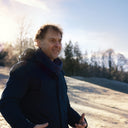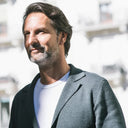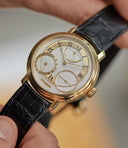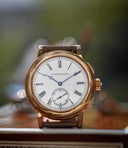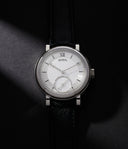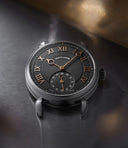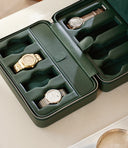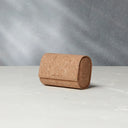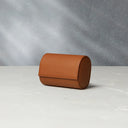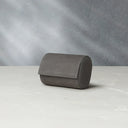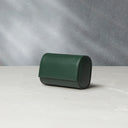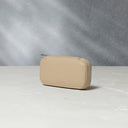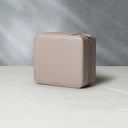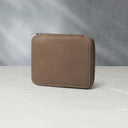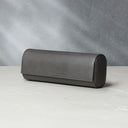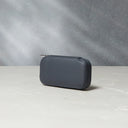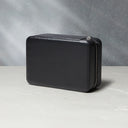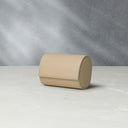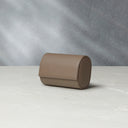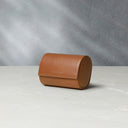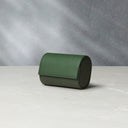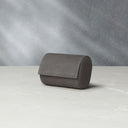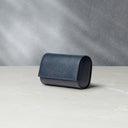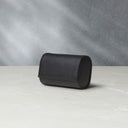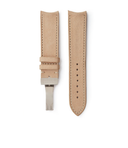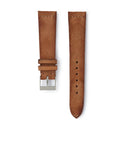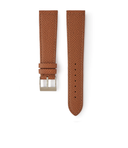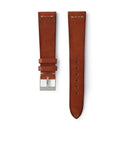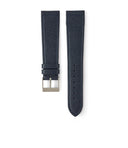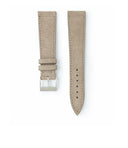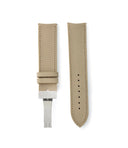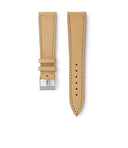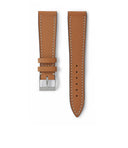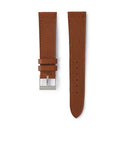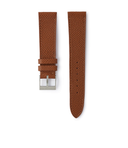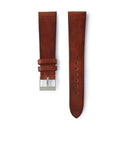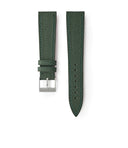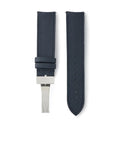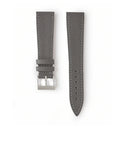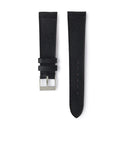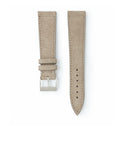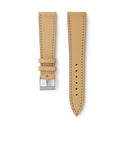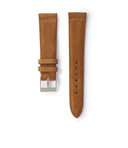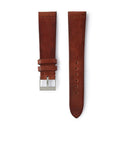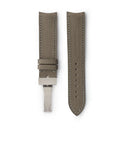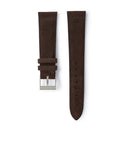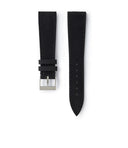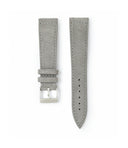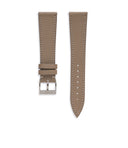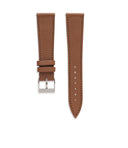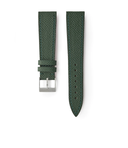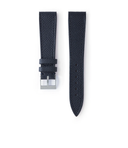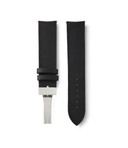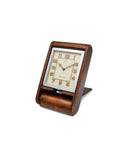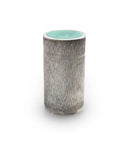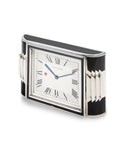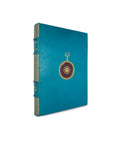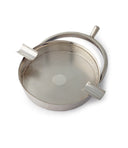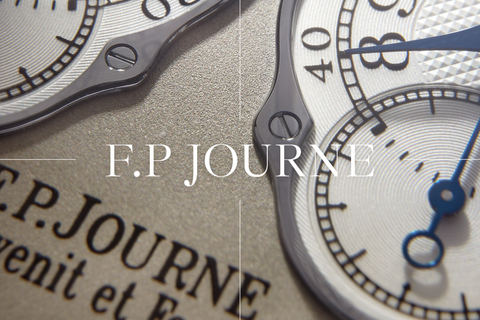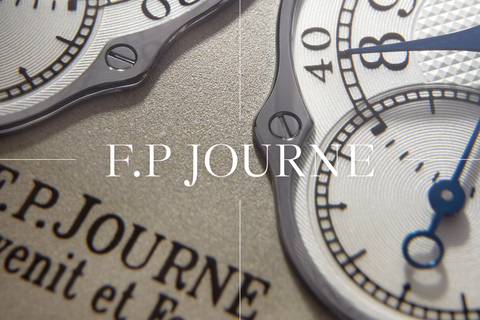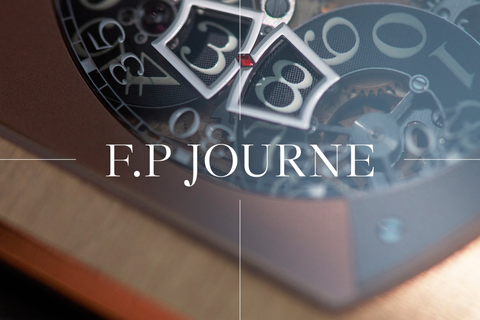
Interview: The Journe Guy - Osama Sendi
By Russell Sheldrake
Collector, enthusiast, historian, lecturer, Instagram account all words that could be used to describe Osama Sendi, or his alter-ego and how he is perhaps better known around the industry, The Journe Guy. Born and raised in Saudi Arabia, Sendi now lives in Canada from where he has firmly established himself as an – if not the – authority when it comes to all things F.P. Journe.
As someone who has remained a fairly private individual on the open stage, Sendi’s public persona has arguably outgrown the man himself and morphed into a brand. Despite the incredible depth of knowledge that Sendi has shared over the years through social media and his own website, very little has been published about him. We were keen to find out more about his background and his other interests outside of Journe. Having spoken with him on multiple occasions, especially when researching the finer details of F.P. Journe, we knew that there was a lot more to Sendi than the Genevan watchmaker that he so proudly promotes.

Sendi in Geneva.
We managed to catch up with him in Geneva late last year in the hope of peeling back the layers that have become to wrap up his true personality and hopefully discover a little bit more about the man underneath. We discuss his journey into watches and how he looks at his collection today, what he thinks is worth keeping an eye on in the market, and, of course, how he became the go-to source for anything F.P. Journe.
ACM: If it’s OK with you, I’d like to go back to before The Journe Guy, to your childhood. You grew up in Saudi Arabia – correct?
OS: Yeah, I grew up in Jeddah, and my dad’s a physician. I grew up in a traditional Saudi family and I lived there until 2010, just as I finished high school. I have three other siblings, none of [whom] are interested in watches by any means. In fact, watches don’t really run in my family; the only person that opened the door of watchmaking to me was my uncle, who still is a watch collector today.
So how does a boy from a traditional Saudi family end up living in Canada? Seems like a pretty big jump.
My dad studied here and ever since then it was like our second family home. In 2010, I finished high school and moved over here. I studied at York University in Toronto, and I started off with human resources. I’m not the most academic person, to be honest, so that didn’t work out and I ended up switching to health management. I just followed in the footsteps of my sister because I had no idea what I wanted to do. It was towards the end of the journey that I started to pick up that I’m pretty good at marketing, because if I’m passionate about something I can talk about it endlessly.

An F.P. Journe Octa Réserve de Marche on Sendi's wrist.
After I graduated, I got into watches and I found what I wanted to do. Being based in Canada, it was hard to enter into the industry because there’s not a lot of room for opportunity in the watch industry here in Canada. If I’m jumping ahead here pardon me, but when I went to Geneva in 2016, I realised that while I could probably put my foot into the door, I didn’t speak a single word of French, and I didn’t know how to communicate with [François-Paul Journe] or his watchmakers. So when I went back, the first and most important thing that I did was I enrolled in French school. In two years, I went from no French to being pretty confident in my French skills.
Wow, that’s quite a commitment for someone who admits to not being the most academic person. It must have been such a confidence boost.
Yeah, it’s a huge boost because it was one of the most difficult things that I’ve ever done. People always say that you need to immerse yourself and go to Paris, but honestly if you don’t have a constant reminder every morning of all the difficulties of learning the language, of why you’re doing it, you will never succeed. Every time I struggled, [I reminded myself that] I have friends that came to Canada who didn’t speak a single word of English, and they left [speaking it fluently]. I said if they can do that, then I can learn French.
So it was your obsession, if that’s the right word to use here, with watches and specifically F. P. Journe, which was your main motivation for learning French?
Absolutely.


Sendi's interest in watches was a powerful motivator for him to become fluent in French
And so where did this obsession start?
I remember one time my uncle was reading this Patek Philippe magazine and I had no idea what this was. I was probably 13 years old. He was going through the magazine and I [asked him], “What is this? What’s this deal with the watches? I don’t understand why you’re into watches.” And he said, “When you can imagine someone sitting at a bench for five years to make one single watch, you’ll understand the art of watchmaking.” And that’s all he said, and I remember it clearly to this day.
I didn’t think much of it, but when I just started to get into watches at the end of 2012, I remembered that phrase, and I started to dig deep into watches. I bought my very first mechanical watch, which was a TAG Heuer, at the end of 2012.
What was the journey like going from buying your first TAG to learning all about F.P. Journe?
I was in New York and I kept going through all the boutiques on Madison Avenue, and I remember there was F.P. Journe. I was like, “What is this?” People took me seriously, I guess, [as I had] a mechanical watch, and so I thought I’d go in. I asked the lady [if she had] anything that’s not precious metal. Because I wasn’t wearing gold at the time and I couldn’t afford platinum, she said, “No, but we have something in aluminium.” And I said, “OK, I’ll take a look at it.” I asked the price, and she said, “It’s about $30,000.” I thought to myself, “This is probably the ugliest $30,000 watch I’ve ever seen in my entire life. What idiot would buy this?” Because I didn’t understand it. And I walked out. That was probably in December 2012.
A few months later, once I understood what exactly I was looking at, both aesthetically and mechanically, it became one of the most beautiful watches to my eyes and I eventually bought it. The trick with F.P.Journe watches, to me at least, is that they have to be understood. If you look at it with lack of knowledge you will not understand the appeal, but with a more trained eye, everything starts to make sense and it becomes a work of art.
It's a bit like looking at a painting, you are either the person who judges the cover and understands little beyond it, or the one who appreciates every stroke of the brush and analyzes the work that it truly achieves.

From TAG Heuer to F.P. Journe, Sendi's collecting journey has evolved over the years.
Over the next eight months, I started to research watches more. I started to realise that one watchmaker sitting on a bench for five years to make a watch isn’t a reality in the 21st century. If you’re buying a Patek or a Rolex, no one’s sitting there making the one watch. And I started to fall out of it a bit because I was disappointed.
Then I went to a store in Chicago and [the assistant and I] were going through the display cases. I told him that F.P. Journe weren’t really interesting because they’ve got gold dials and everything. He said, “We’ve got something in tantalum,” which I thought sounded interesting, so he invited me to take a look at it. I strapped it on my wrist and something spoke to me within three seconds. I didn’t know what this was, but it fit me so perfectly; it was exactly what I was looking for. [Sometimes you just have] that connection even if you don’t know anything about it – it just works. I said I had to have it.
That’s a feeling many of us can probably sympathise with.
Exactly. He started to talk about F.P. Journe and he told me there’s a watchmaker and they make 800 to 900 watches and they make everything A to Z, so it was everything that I was actually looking for. It was what brought me to watches. It was all in one watch, and one brand, so I got hooked. And a few months afterwards I bought the watch, my Chronomètre Bleu, which I still have.
'[While researching watches] I started to realise that one watchmaker sitting on a bench for five years to make a watch isn’t a reality in the 21st century. If you’re buying a Patek or a Rolex, no one’s sitting there making the one watch.'
It sounds like you had a set of ideals inside you already, so it was a journey of finding a brand that aligned with your ideals – and it was in that Chronomètre Bleu that you found that alignment.
Yeah, and the problem was that if you [got] into buying Patek Philippe or Audemars Piguet or something, there was no connection with the watchmaker, so you have to go into independents. You had to look for Roger Smith or Dufour, but they weren’t accessible and were very expensive – not to mention having to wait four or five years. I could never fathom affording [them]. F.P. Journe had this unique placement in the market where, in [François-Paul Journe’s] own words, it’s the largest of the independents, but the smallest of the brands. You’re getting the benefits of everything. It’s accessible; you can go in and you can buy one – well, maybe not today, but you could buy one at the time – and not have to wait.
So how do you get from buying your first Chronomètre Bleu to meeting F.P. Journe for the first time? What’s that journey?
I really started getting in to F.P. Journe in about April 2014. I was rather a private person – I was not big into social media at all and I kept to myself. I was looking on the forums and I started an Instagram account to just look at other accounts. I saw some people with 2,000 or 3,000 followers, and they were genuine collectors sharing their passion. Instagram was very different seven years ago. I told myself, “What’s the harm in sharing my watch journey? I will never get to 1,000 followers, so maybe if I get to 500 I’ll be a success and I’ll stop.”
I started off by sharing my watch journey from the days that I got my Zenith and my Blancpain, and then sharing my respect for the independents – Dufour and Roger Smith. It was a reflection of my journey into F.P. Journe as well. I also started making memes, because I heard and read stories of François-Paul Journe’s various encounters. [I had] created this image in my head of who he was, which is just a very direct – an “I like you or I don’t like you” kind of person. I put him on a pedestal as the greatest… not just watchmaker, but figure, and to me obviously he’s an idol.
To my surprise, one [of my memes] ended up on his phone – someone sent me a picture of François-Paul looking at his phone and one of my memes on it. Then, in 2015, the New York boutique contacted me to say that he was coming over for the launch of the Élégante and asked if I would like to meet him. People always say that you should never meet your heroes as they never live up to your expectations, but I decided to go ahead. [My condition was] that he had no obligation to like me or respect me – and if he didn’t like me, it wasn’t going to affect my love and admiration for his work.
It was like going to a wedding. I got my best suit; I got my best shoes; I was just the perfect fanboy. When I went to the event, I introduced myself and he recognised me right away. He said, “You’re the guy on the internet who’s making all these crazy pictures.” To my surprise, he welcomed me, spoke encouraging words to me, and did something that he normally doesn’t do – he invited me to a small dinner right after the event.
That’s quite the introduction.
Yes, and at the time I spoke zero French.

Memes and meetings – social media was a surprising connection between Journe and Sendi.
So Journe was aware of you quite quickly – in an online space, anyway.
Yes, and there were no blogs at the time writing about Journe consistently, so I was on the forums writing full articles about [the brand]. I was also aggressively making fun of other brands because they weren’t F.P. Journe. I was a bit hot-headed at the start; I was very energetic and enthusiastic in bashing other brands. I didn’t know any better and obviously today this isn’t something I would do. My goal at the time was for every watch collector around the world to know who F.P. Journe was, whether they liked it or not.
So, from there, you grew your Instagram account and then launched the website.
A few years [later], I renamed my account @thejourneguy. My brother told me that I needed to expand out of Instagram, but instead of starting a YouTube channel, I decided the best way for me to express myself was to start a blog. I saw the rise of other successful blogs like Hodinkee, so I figured I could give it a go and see what happens. I started the site as the primary source of F.P. Journe-related information, but my last post was back at the end of 2019 – the reason being that Journe really started to pick up and I was putting out information that people were not just finding interesting, but profiting from. Guys [were] flipping a watch and demanding a $20,000 price increase because of something I wrote. I felt a need to be more responsible with my knowledge, rather than spilling it on the internet where there could be consequences. It's not just about publishing material but it's also about what that material could be used for and by whom.

Sendi has worked tirelessly to help Journe's name reach a wider audience.
What kind of interactions do you have through your account today? Are there a lot of people coming to you for Journe-specific knowledge, or are people just asking for a cheap Chronomètre Bleu?
I think the ship for the discounted Chronomètre Bleu has long sailed, so not anymore. At the start, people used to ask me how to get an F.P. Journe watch. No one was going online to look up where the boutiques were – they would ask me for an introduction to the store. But [later on], it started to get out of hand. People were starting to ask a lot of me, then it switched to, “What’s the value of this? What’s the market value of that?” At that point, if I didn’t know [the person], I wasn’t going to answer the question. It used to be [that] those of us who were in this were happy to take a 30 or even 50 percent loss on a watch because that was the price you paid for the enjoyment you got from it, whereas today, everyone is looking at how [they can] make money – and that doesn’t click with me.
Does that mean that you think Journe, and independent watches as a whole, are becoming more of an investment asset than a collector’s item?
Easily, and even though it’s not my thing, from that perspective, I can’t be such a grand fool that I no longer look at my watches simply as watches. They are assets, whether I like it or not. We used to laugh five years ago at a watch being an investment. But they are, and with everything plummeting because of Covid, watches are skyrocketing because of many different factors coming into play. You now have people buying watches that they don’t even like, but that they see potential in. Collectors now have to compete against this. The [difference] between the general collector and the investor is that the investor has a bigger pocket – and because he’s looking at returns, the more he puts in, the more he gets out. Whereas the collectors are thinking, “I need to buy what I want to wear.” So there’s that conflict.
'It used to be [that] those of us who were in this were happy to take a 30 or even 50 percent loss on a watch because that was the price you paid for the enjoyment you got from it, whereas today, everyone is looking at how [they can] make money – and that doesn’t click with me.'
As a self-confessed collector now yourself, do you have a philosophy behind your collecting? Is there an end goal?
Well, I’m limited by my finances.
Aren’t we all?
Yeah, that's the first thing. When I collect, everything has to have a story and a connection. It is honestly what I look for, and I can talk about the acquisition and the story of each of my watches. Today, people are starting to tackle serial numbers, but most of the time, that doesn't mean anything to me. We know that serial numbers in early Journe are not chronological, OK. So if we get rid of the serial number, now you have to talk about the actual watch, details of the watch, what makes it interesting. Is it early engraving; [does it have] shallow engravings? The serial number doesn’t matter because, at the end of the day, everything is just put together


To Sendi, the details of the watch is what makes the piece interesting.
Interesting. So what is exciting you in watches right now? It can be outside of Journe, it could be vintage, neo-vintage, or modern. What’s really catching your eye?
As much as my bread and butter is F.P. Journe, I’ve always been keeping an eye on everything else around it, and I think it’s important to do that. Most people don’t understand that about me – they assume that I’m a one-trick pony and everything else is trash. But if someone makes something – [if there’s] a brand or a watchmaker that is worth recognition – then I have to recognise it. I have to know about it.
I’ve always been an admirer of Rexhep Rexhepi, well before he established his recent fame with the Chronomètre Contemporain. I have always found that he has incredible potential, and a vision. In the past, I said it was crucial whether he was going to make a mistake or not, but I think today he’s finally established himself.
When I collect, everything has to have a story and a connection. It is honestly what I look for, and I can talk about the acquisition and the story of each of my watches. Today, people are starting to tackle serial numbers, but most of the time, that doesn't mean anything to me
To change tack ever so slightly and go back to F.P. Journe, how does a young 20-something go from making memes about his favourite watch brand to lecturing alongside Journe at the Horological Society of New York?
Initially, I was not supposed to do the lecture. By chance, certain people couldn’t participate, so Journe approached me and asked if I would like to talk about resonance. I have to admit, I was nervous, because I knew that talking at the Horological Society of New York is the one place where you really need to know your stuff. When I did it, I didn’t know how I went from being this 20-year-old who didn’t understand anything about watches to lecturing about them – and on resonance! It was great to do it alongside François-Paul as well, to get his thumbs up for my work.
So did that feel like it was an official seal of approval from F.P. Journe himself?
Yes. François-Paul has always been supportive of me, and been very transparent with me, because he knows how passionate I am. He knows I like to learn and I like to ask a lot of questions. He’s always been pushing me to take a step further, to learn about the history of watchmaking. To me that’s the fascinating part, because when I buy watches – aside from the various factors of the watch itself like pricing and technical specs – I look for stories. If you just buy a watch, it’s just a watch – there is nothing interesting about it and you’d get bored very quickly.

Sendi and Journe jointly discussed the history of resonance in their lecture at the Horological Society of New York.
How do you see your relationship with François-Paul today?
We are friends, first and foremost. I am still a fan of his work, so I am a fanboy and a friend. And François-Paul, a couple of years ago, approached me and told me that every time he sits with me, I crack his head over questions and details that, at his age, he’s beginning to put behind him. [He says] I’m making him have to go back and think about certain things. And so [partly] I am his historian. My relationship with him is to keep asking him these questions that give him a hard time.
One final market-based question. This interest in Journe, and independents as a whole, is matched by massive price rises. Is this set to continue for the next five to 10 years, or is there some form of plateauing occurring now?
If I look at just F.P. Journe as an example, I think a few years ago we all knew that they were underappreciated, and that’s why I was doing what I was doing. The same could be said for other independents – you had a Dufour selling for $100,000 and that was considered expensive. But they were underappreciated, then there was a big boom. I felt that it was going to switch at some point. What we didn’t expect is a 300 percent rise in a year or two. To me, this is very unstable, very abnormal, and quite discomforting because you’re not really sure what a market value is. When people started to ask [me to value watches], besides not wanting to answer, I couldn’t give an answer because everything was just so quick. What we’re starting to see today, at least from my point of view, is certain plateaus arriving, which are high, but I’m looking for stability. I’m looking for a safe zone where a collector who wants to buy knows the value of what he is buying, and understands that if he sells something, this is the sale price, [without] having to worry that it’s going to double after he sells it.
Our thanks to Osama Sendi for taking the time to speak to us.









